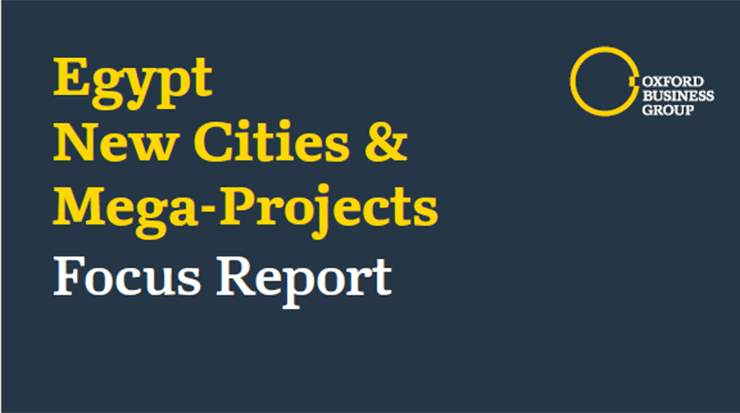The study provides in-depth analysis of Egypt’s urban planning agenda and the role earmarked for infrastructure and construction in generating long-term economic growth, in an easy-to-navigate and accessible format, supported by key data and infographics.
The New Administrative Capital (NAC), which is set to ease the pressure on Cairo’s struggling infrastructure and housing, and replace it as the seat of government, is one key aspect of its dual focus.
The report also highlights several of the additional, strategically important hubs planned for development, which include New Alamein City and New Aswan City, while providing details of a national drive simultaneously under way to overhaul a number of the country’s existing urban centres.
Alongside new housing, Egypt’s urban planning agenda requires a broad range of infrastructural development to meet rapidly rising demand. OBG’s report offers coverage of the country’s mega-project pipeline, including its wide-ranging transport infrastructure initiatives that span roads, rail, metro and port-related development.
Egypt’s plans to bolster the country’s overall energy capacity by rolling out extensive power and utilities infrastructure, with a focus on both hydrocarbons and renewables, is also examined.
In addition, OBG considers the key role that smart city technologies and innovation will play in supporting efforts to put sustainability at the heart of new development, dovetailing with the principles of Egypt’s Vision 2030 and in the context of the upcoming COP27 UN Climate Change Conference in Sharm el-Sheikh in November.
OBG’s focus report has been produced with input from several major companies playing a role in the implementation of Egypt’s urban planning agenda, namely: EDECS; Menassat Developments; Sorouh Developments; ASGC Egypt; Telecom Egypt; Misrah Otalia Properties; Concrete Plus; Cisco; Alstom; The Arab Contractors; Hill International; and Al Ahly Leasing and Factoring Company. It includes contributions from a number of high-profile representatives from the firms and features case studies on key developments relating to the country’s urban expansion.
Karine Loehman, managing director for Africa, OBG, said that having helped the country to weather the challenges of the pandemic, heightened construction activity, fuelled by Egypt’s growing population and broader efforts to decentralise Cairo’s urban density, looked set to continue through the decade.
“The infrastructure drive that Egypt embarked on following the introduction of its reform programme in 2016 was key in helping the country to maintain positive growth during the health crisis,” Loehman said. “With construction regarded as a priority sector for economic expansion and to ensure Vision 2030 targets are met, investors keen to contribute to Egypt’s infrastructure development and urban expansion will find a vast range of opportunities emerging across multiple sectors in the coming years.”









